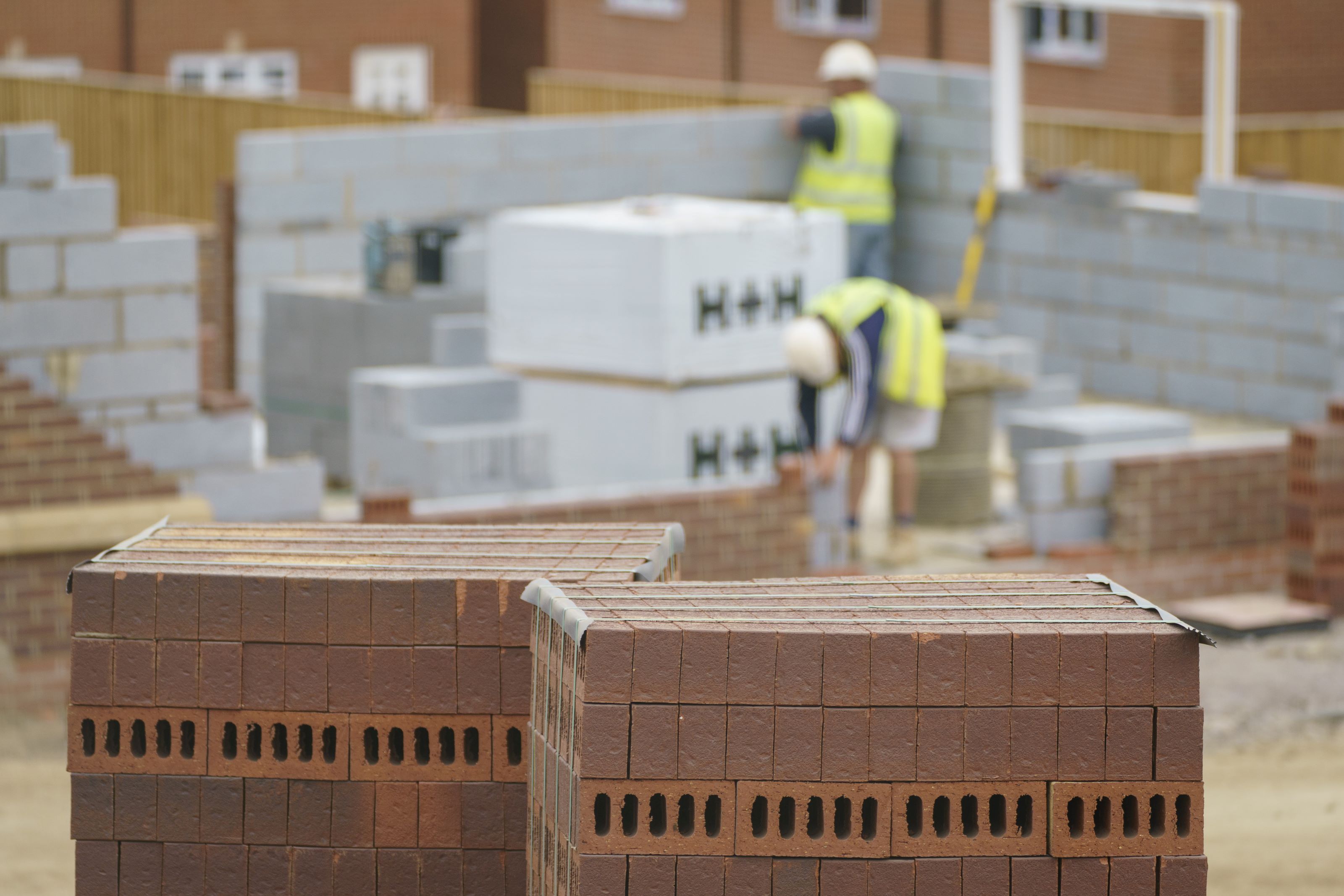Visa rules for foreign bricklayers and plasterers relaxed to fill skills shortages
Immigration rules for foreign workers such as bricklayers, roofers, carpenters, tilers, joiners and plasterers have been eased by the government to tackle skills shortages in the UK building industry

Foreign skilled workers will now be granted easier to access visa applications to come to the UK, as the government announces new measures to tackle the skill shortages in the labour market.
It was previously reported by Homebuilding & Renovating that immigration rules were set to be relaxed to ease skills shortages for builders to tackle the large number of vacancies in the construction industry and help homeowners find a builder, and these changes have now been brought in.
However, the decision has faced criticism, even from the government's own members who see the move as simply a short-term solution to the UK's skill shortage problem.
Skilled workers added to shortage occupation list
The decision from the government to encourage immigration comes due to shortages in skilled workers.
Relaxed visas will now be granted for workers who form part of the government’s ‘shortage occupation list’ which includes key construction workers such as bricklayers, plasterers, roofers, and carpenters.
The decision was recommended by the Migration Advisory Committee (MAC).
Why has the government relaxed immigration rules?
After the Brexit transition, skilled foreign workers departed from the UK, while the demand for their services has surged in the wake of the pandemic.
Bring your dream home to life with expert advice, how to guides and design inspiration. Sign up for our newsletter and get two free tickets to a Homebuilding & Renovating Show near you.
Between November 2022 and January 2023, there has been a 65% increase in construction job vacancies compared to the pre-pandemic period of January to March 2020.
According to the recent State of Trade Survey conducted by the Federation of Master Builders (FMB), 48% of FMB members support plans to attract more skilled labour from overseas in order to help address the chronic skills gap in the construction industry. Only 21% of respondents opposed the idea of altering immigration regulations.
In August 2022, the government assigned the Migration Advisory Committee (MAC) with the task of reviewing the shortage occupation list. Inclusion on this list enables individuals to apply for a skilled worker visa, allowing them to work in the UK. This provision permits employers to recruit workers from abroad without the requirement of meeting higher salary thresholds and visa fees.
How will skilled foreign workers apply?
Foreign workers who are skilled in roles on the UK shortage occupation list, which includes bricklayers, plasterers, roofers, and carpenters, will now face reduced visa application restrictions.
Being on the shortage occupation list means normal minimum salary requirements for getting a work visa do not apply. Instead foreign workers can apply for a work visa for a role offering 80% of the standard remuneration.
Additionally, the job roles being on the shortage list means they can enjoy a reduced application fee for a visa, which is usually £625 for under three years or £1,235 for more than three years. Employers are sometimes also exempt from paying a yearly immigration skills charge.
However, applicants must still possess a sponsored job offer from an employer and fulfil the overall English language prerequisites under the broader Skilled Worker route.
News welcomed by industry experts
The decision has been greeted positively by industry experts as the construction industry has long suffered a shortage of skilled workers.
Suzannah Nichol, the chief executive of Build UK, said: “It is vital that construction is able to fill vacancies and quickly address shortages around particular roles.
“So we welcome the news that five occupations will be added to the shortage occupations list, which will help the industry continue to deliver the schools, homes, hospitals and infrastructure that we need.”
Brian Berry, Chief Executive of the FMB, stated: “It’s good to see the Government listening to the FMB and other industry stakeholders about the current skills shortages. Adding trades such as bricklayers and carpenters to the Shortage of Occupation List delivers on calls from the construction industry.
"Recent data from the FMB State of Trade survey reveals that 60% of jobs are stalled due to labour shortages. The construction sector needs at least 225,000 additional workers by 2027 to meet demand, and many more if we are to tackle energy efficiency improvements to homes.”
But not everyone is happy with the move
The decision has been criticised by the government’s own members.
Sir John Hayes, the Conservative MP for South Holland and The Deepings, stated: “This is Treasury and OBR (Office for Budget Responsibility) driven, not Home Office driven. The Treasury has got to raise its sights beyond turning on the tap which is migration rather than investing in the country’s own workers.
“It is a nonsense, frankly, for us to be recruiting builders from abroad when the construction industry has a long history of offering apprenticeships and while 2.5 million British people are on long-term sick leave.
“We should be reducing, not increasing the number of occupations which are being designated as shortage occupations. It is very undesirable to recruit into the construction sector from abroad rather than training up the British workforce.”
Jonathan Gullis, the former education minister, said: “I am baffled, like many British people, will be that we are relying on the lever of mass migration when it is simply not needed.
“These are skilled, important jobs and there will be plenty of people who can take them up today as well as having a pipeline of future skills coming through the system in future through our investment in education and skills. I hope the Government will massively put the brake on mass migration and look for the talent needed within the UK.”

The MAC stated in a report that: “Stakeholder evidence suggests that there are sector-wide initiatives to improve recruitment and retention as well as already well-established training pathways.
“It also suggests that the industry is keen to increase direct employment, moving away from its traditionally high self-employment rate.
“Both actions show a desire in the industry to increase domestic recruitment and improve workers’ career development opportunities. Despite this, in some areas of the sector there are still shortages which do not show signs of abating.”
It said it also considered the "strategic importance of construction for the UK economy" and how its workforce was likely to change in the next decade, with "demand likely to increase markedly".
The Home Office has also said the shortage occupation list would continue to remain under review to ensure it reflected the current labour market.

News Editor Joseph has previously written for Today’s Media and Chambers & Partners, focusing on news for conveyancers and industry professionals. Joseph has just started his own self build project, building his own home on his family’s farm with planning permission for a timber frame, three-bedroom house in a one-acre field. The foundation work has already begun and he hopes to have the home built in the next year. Prior to this he renovated his family's home as well as doing several DIY projects, including installing a shower, building sheds, and livestock fences and shelters for the farm’s animals. Outside of homebuilding, Joseph loves rugby and has written for Rugby World, the world’s largest rugby magazine.
